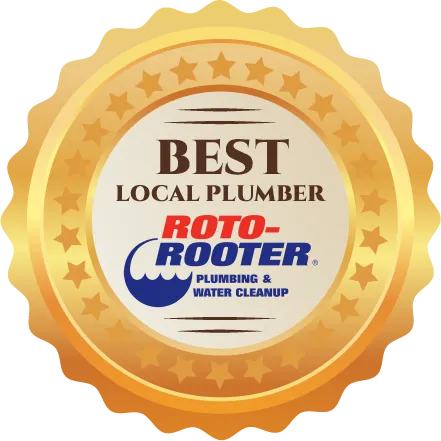Why Store-Bought Chemical Cleaners Can Harm Your Drains
In many regions, particularly those with older infrastructure or hard water issues, the use of store-bought chemical cleaners can pose significant risks to your plumbing system. While these products promise a quick solution to stubborn clogs, they often contain highly corrosive substances that can exacerbate the existing challenges in your area. Over time, these chemicals can weaken pipes, which might already be compromised by the mineral buildup common in areas with hard water. This can lead to leaks or even bursts, a problem that is especially concerning in older neighborhoods with aging plumbing systems. Moreover, the environmental regulations in some regions may discourage the use of such chemicals due to their potential impact on local water treatment facilities. These factors highlight the importance of considering alternative, more sustainable methods for maintaining your home’s plumbing.
The Corrosive Nature of Chemical Cleaners
In areas with older plumbing infrastructure, the use of chemical drain cleaners poses a serious risk. While these products promise quick results, it’s important to understand their corrosive nature.
When poured down a drain, chemical cleaners often contain harsh substances such as sodium hydroxide or sulfuric acid. These chemicals aggressively break down clogs but can also attack the pipes themselves. Over time, repeated use can weaken pipe walls, increasing the risk of leaks or even bursts.
Temperature changes throughout the year can cause pipes to expand and contract, further compounding the damage caused by these cleaners. While they may remove the immediate blockage, what’s left behind is often a weakened system more vulnerable to failure.
Older pipes are especially at risk of corrosion and erosion, leading to costly repairs. The convenience of chemical cleaners often comes with a hidden price—potential long-term damage to your plumbing. Instead, it’s wise to explore safer, non-corrosive alternatives to keep drains clear without risking the integrity of your system.
Short-Term Fix vs. Long-Term Solution
In areas with hard water, such as St. George, Utah, chemical drain cleaners might seem like a quick fix for clogged drains, but they often mask underlying issues rather than resolving them. The relief you feel when the water flows again is usually temporary. Hard water in southern Utah leads to mineral buildup within pipes—a problem chemical cleaners fail to address effectively. By relying on these short-term solutions, you risk worsening the issue over time.
Instead of reaching for that bottle, consider long-term solutions better suited to Washington County’s water conditions. Regular maintenance, such as using a drain snake or a natural enzyme-based cleaner, can help prevent clogs caused by mineral deposits.
Additionally, scheduling professional plumbing inspections can identify and address problems related to the region’s high mineral content before they escalate. Investing in these methods ensures your plumbing remains healthy, efficient, and long-lasting.
Taking proactive steps now can save you from costly repairs and frustrations down the line, specially in Southern Utah, where hard water is a persistent challenge for homeowners.
Environmental Impact of Chemical Drain Cleaners
In Southern Utah, the use of chemical drain cleaners poses unique environmental challenges. The region’s delicate desert ecosystems and shared groundwater resources are particularly vulnerable to contamination. When these chemicals are poured down the drain, they can seep into the aquifers that supply much of St. George’s drinking waterand flow into local waterways, potentially impacting areas like the Virgin River. This can harm native aquatic life, including fish species and other wildlife that rely on clean water in an already water-scarce environment.
Moreover, in urban and suburban areas of Washington County, harsh chemicals can disrupt the natural bacterial processes in wastewater treatment systems, reducing their effectiveness and increasing the risk of pollutants entering the environment. The production and disposal of chemical cleaners also contribute to greenhouse gas emissions and hazardous waste—issues that further strain the region as it contends with drought, rising water demand, and the impacts of climate change.
Alternatives to Chemical Drain Cleaners
If you’re looking to reduce your environmental footprint in southern Utah, especially in areas with hard water, turning to alternatives to chemical drain cleaners is a great start.
In regions like St. George, where mineral deposits and lime scale buildup are common, using baking soda and vinegar can be particularly effective. This tried-and-true method creates a fizzy reaction that helps break down gunk in your pipes while reducing scale buildup. Simply pour half a cup of each down the drain, wait 15 minutes, and rinse with hot water.
In neighborhoods with more organic debris from landscaping—such as areas with mature trees or decorative plants—enzymatic drain cleaners are an eco-friendly choice. They use natural enzymes to digest organic materials clogging your pipes, are safe for septic systems, and won’t harm plumbing.
For windy Southern Utah days, when outdoor debris like sand, leaves, and twigs can cause blockages in exterior drains, keeping a drain snake on hand is invaluable. This manual tool removes stubborn clogs without chemicals, making it perfect for those tougher jobs that need a little extra effort—especially after dust storms or during seasonal yard cleanup.
Preventive Measures to Avoid Clogs in St. George
While some drain issues can be tackled with DIY solutions, there are times when calling a professional plumber is vital. In southern Utah, persistent slow drainage can be caused by shifting sandy soils or mineral buildup from hard water, making it crucial to call in the experts before the issue worsens.
In St. George and surrounding communities, fluctuating water pressure, unusual noises like gurgling, foul odors, or water backing up are all signs of deeper issues that require professional attention. Don’t ignore recurring clogs—especially in older neighborhoods with aging infrastructure—as they may indicate a more serious blockage or damaged pipes.
Additionally, in areas with established landscaping, tree or shrub roots can infiltrate underground pipes, leading to severe blockages or breaks. If you suspect this, contact a plumber immediately.
Local professionals have the tools and expertise to inspect and repair the problem without causing further damage. Attempting complex repairs on your own can lead to costly mistakes. Trust a St. George plumbing expert to ensure your system remains healthy and reliable.
When to Call a Professional Plumber in Washington, UT
While some drain issues can be tackled with DIY solutions, there are times when calling a professional plumber is vital. In southern Utah, persistent slow drainage can be caused by shifting sandy soils or mineral buildup from hard water, making it crucial to call in the experts before the issue worsens.
In St. George and surrounding communities, fluctuating water pressure, unusual noises like gurgling, foul odors, or water backing up are all signs of deeper issues that require professional attention. Don’t ignore recurring clogs—especially in older neighborhoods with aging infrastructure—as they may indicate a more serious blockage or damaged pipes.
Additionally, in areas with established landscaping, tree or shrub roots can infiltrate underground pipes, leading to severe blockages or breaks. If you suspect this, contact a plumber immediately.
Local professionals have the tools and expertise to inspect and repair the problem without causing further damage. Attempting complex repairs on your own can lead to costly mistakes. Trust a St. George plumbing expert to ensure your system remains healthy and reliable.
Conclusion
In many areas with older plumbing infrastructure, such as historic neighborhoods in St. George, Utah, using store-bought chemical cleaners may seem like a quick solution but can actually cause significant harm to your drains over time. The corrosive nature of these chemicals can weaken pipes that, in older homes, may already be vulnerable due to age, hard water, and mineral buildup—leading to potential leaks and costly repairs.
Additionally, in regions like southern Utah, where protecting shared aquifers and the Virgin River watershed is a priority, there is growing concern about the impact of these chemicals on local water quality and fragile desert ecosystems.
Instead, consider safer alternatives and preventive measures that are better suited to the area’s infrastructure, such as enzyme-based cleaners, drain snakes, and regular maintenance. Don’t hesitate to call a local plumber familiar with Washington County’s unique water and soil conditions to ensure your plumbing system stays in top condition, helping you avoid future headaches and expensive damage.
Tags





